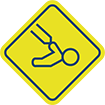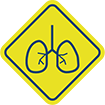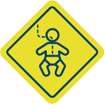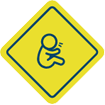TALK TO YOUR DOCTOR
Spinal muscular atrophy (SMA) is a disease which progresses quickly, so every day matters. Noticing signs early is key, because the sooner a baby can receive care from their doctor, the better. If you feel something isn't right with your baby, or your baby is displaying any of the early signs of SMA, trust your instincts and speak to your baby’s doctor.

Make an appointment with your baby's doctor.


Be prepared
It's natural to feel anxious when talking to your doctor about your baby's development or health. To help you prepare for the discussion, follow these tips:
-
Note down key signs and concerns you have about your baby’s development.
-
Keep diary of the changes you notice and the dates they occur.
-
It can be helpful to show your doctor any videos you may have which show lost motor milestones or regression over time, or examples of other signs.
-
Beforehand, write down any questions you may have.

Discuss your concerns
When speaking to your doctor, the more information you can give them, the better equipped they'll be to provide the best advice or point you in the right direction. Ask your doctor about next steps and what to expect.


SYMPTOM CHECKLIST
Use our Symptom Checklist below to make a note of your baby's symptoms
Select age range:

POOR HEAD CONTROL 1
When lying on their back or tummy; they might struggle to move their head from side-to-side, and to lift their head up.3,4 When on their back, their head may seem to rest on one side of their body with little movement.

WEAK LEGS & ARMS
When lying on their back, your baby may not move or lift their arms and legs very much, rarely kicking their legs or moving their arms away from their body, They may struggle to reach for things.3,5

FAST BELLY BREATHING
Your baby's breathing may be fast, even when they are resting. When breathing, their belly may move up and down noticeably more than their chest.3

DIFFICULTY FEEDING/SWALLOWING 3,4
Your baby may struggle to suck or swallow when feeding due to muscle weakness,3 and you may notice they are slow during feeding.4

WEAK CRY & COUGH 4
Your baby's cry and cough may seem weak and difficult to hear. They may cough repeatedly and their chest may sound congested.4
Download your discussion guide to help prepare for conversations with your baby's doctor:

References
- Markowitz JA, et al. J Obstet Gynecol Neonatal Nurs. 2004;33:12–20.
- Pera MC, et al. PLoS One. 2020;15(3):e0230677.
- Kolb SJ and Kissel JT. Neurol Clin. 2015;33(4):831–46.
- Wang CH, et al. J Child Neurol. 2007;22(8):1027–49.
- Leyenaar J, et al. Paediatr Child Health. 2005;10(7):397–400.

